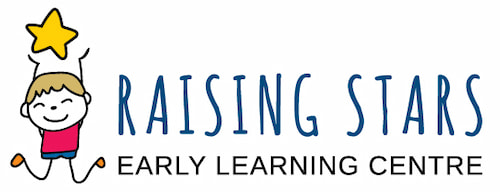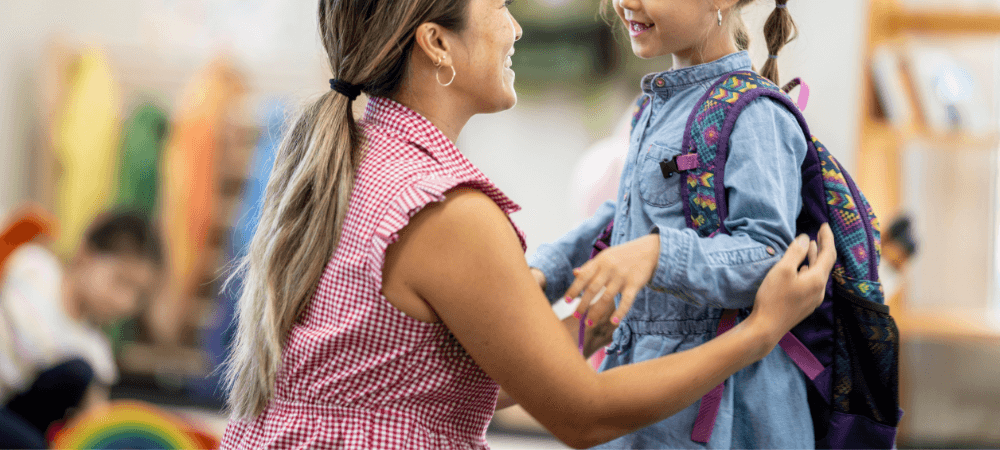Separation anxiety is a natural part of early development in children, and it’s not uncommon for children to start showing signs of separation anxiety when attending childcare. While seeing your little one go through separation anxiety can be tough, it’s important to remember that it’s completely normal – and with the right tools, they will eventually learn to manage the emotions that come with childcare drop off.
As early childhood educators, we’ve seen how regular attendance at childcare can help children with separation anxiety. With consistent routines and a safe environment, early childhood education and care can help children become more confident spending time away from their parents.
What is Separation Anxiety?
Separation anxiety is when children become distressed after being separated from a parent or a primary caregiver. Most children develop some level of separation anxiety during the first few years of their lives, as they become used to having their parents’ full attention.
Babies as young as six months old will start to understand object permanence, which is the concept that people and things continue to exist even when they are out of sight. This means that when parents or primary caregivers are suddenly not around, children understand that they are elsewhere, leading to a feeling of being left behind.
Each child experiences separation anxiety differently – some may overcome it relatively quickly, while others can take longer to adjust to the idea of being apart from their parents.
How Childcare Can Help Address Separation Anxiety
Childcare plays a supportive role in helping children develop trust in the world outside of the familiar home environment. Teachers and childcare workers work together to help children feel confident when they are away from their parents.
Childcare Provides A Consistent Environment
Childcare centres generally follow a daily routine with set times for play, meals, rest, and group activities. This consistency helps children know what to expect, which reduces anxiety.
Familiar surroundings, supportive staff, and a stable schedule all contribute to a sense of safety for children. As children get used to the routine, drop-off becomes easier and more natural.
Childcare Builds Independence in Children
Childcare offers opportunities for children to practise doing things independently. Small tasks like putting shoes away or choosing an activity helps them develop a sense of agency and confidence in being on their own.
Children who are more confident in managing themselves without direct support from caregivers will be less prone to feeling overwhelmed by separation anxiety.
Childcare Lets Children Form New Relationships
Childcare environments also give children opportunities to form new connections. Children learn to build trust in other adults from repeated interactions with educators who provide care, safety, and reassurance. Positive interactions with other children can also lead to friendships that offer comfort and familiarity for children.
New relationships provide children with a wider support network that they can rely on even when parents or primary caregivers are not present.
Tips for Managing Separation Anxiety
The initial transition to childcare can be difficult for children who experience separation anxiety intensely. Here are some tips for parents to help ease the transition into childcare:
- Keep goodbyes short and sweet
Try not to make a big deal when dropping off your child (even if it is a big deal for you!). Children mirror your emotions, and a long, emotional goodbye can make a child feel unsure and anxious about what is happening. Stick to a simple goodbye with a hug and a reminder that you’ll be back at the end of the day.
- Reinforce your return
Let your child know that you will be back to pick them up at the end of the day. If your child isn’t able to tell time yet, give them a sense of when they can expect to see you using events that are familiar to them. For example, instead of giving a time, tell your child that you’ll come to pick them up after the second snack time of the day.
- Practice being apart
If your child is struggling with longer separations, start small. Work with a trusted babysitter or arrange playdates with a friend without you being physically present. Even spending short periods in another room at home can help children build confidence being away from you.
With the right support from childcare educators, your child’s separation anxiety will gradually fade over time.
At Raising Stars, our educators support children through each stage of their development, including the early challenges of separation. With experienced educators and a focus on working closely with parents, we help children settle into care confidently. Visit our childcare centres in Five Dock, Gregory Hills, and Moss Vale to find out more about how we can provide high-quality early learning for your child.

